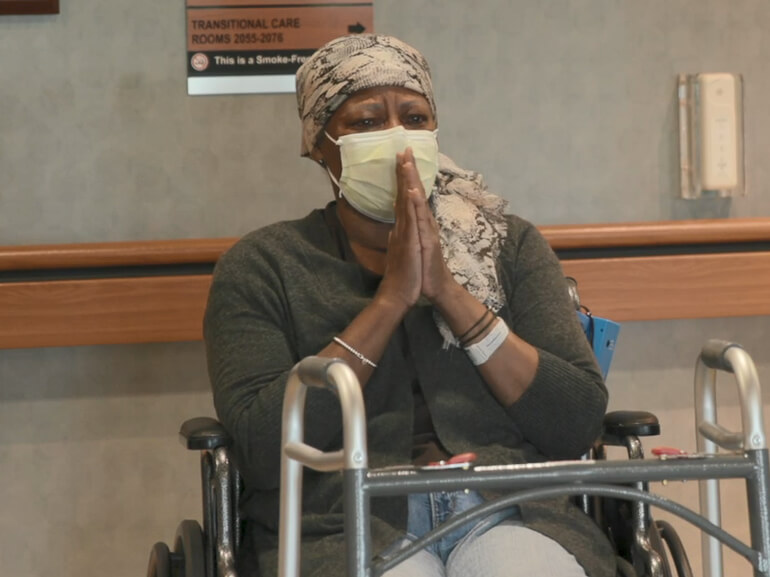Matilda's Story

A continuum of care that provided compassionate healing
As a nurse, Matilda Wallace knows when something isn’t right. In March, as the coronavirus pandemic landed in the United States, she went to the emergency room at New York Presbyterian Hudson Valley Hospital with a cough, fever and shortness of breath. She was quickly tested and confirmed positive for COVID-19.
Not long after arriving at the ER, Matilda went into respiratory failure and was placed on a ventilator. Doctors tried several times to liberate her, but were unsuccessful. She received a tracheostomy for airway support and feeding tube. Complications continued, including renal failure which required dialysis.
By April 21, Matilda was no longer positive for the virus, but needed more time to recover and heal. Because New York does not have critical illness recovery hospitals, Matilda’s doctors sought care in neighboring states. She arrived at Select Specialty Hospital – Harrisburg (Pennsylvania) via medical transport on April 27.
A physician-led team of nurses, therapists, pharmacists and dietitians created a plan to get Matilda back home.
On the first day, the respiratory and pulmonology team began testing to determine if Matilda’s lungs were ready to work independently. For the next two weeks, the team led her through breathing, coughing and chest exercises. Therapists gradually reduced ventilator settings and placed a valve allowing her to speak more normally.
Speech-language pathologists used strengthening exercises for the mouth, tongue and jaw, while dietitians crafted meal plans with proper textures and nutritional balance. Matilda was removed from the feeding tube and resumed regular meals.
Simultaneously, physical and occupational therapists launched a mobility program. Twice a day, they encouraged her to sit up, roll in bed and make small movements that would add up to big gains in stamina and endurance.
One week later, Matilda was freed from airway support and breathing independently again. Her kidneys recovered and dialysis discontinued.
Exactly one month after arriving in Pennsylvania, Matilda was well enough for the next phase of recovery and was transferred to Penn State Health Rehabilitation Hospital, also a part of Select Medical’s continuum of care.
Upon admission, Matilda was unable to walk or get out of bed alone. She was easily fatigued, and required extensive support, as well as rest breaks, to bathe and dress. Still, her goal was to be as independent as possible.
Occupational therapy taught her to shower, dress herself and get in and out of bed. She practiced chores such as folding and hanging clothing, meal preparation and retrieving items from cabinets and drawers.
Physical therapy worked with Matilda on moving safely between a bed and chair, walking on even and uneven surfaces and going up and down stairs. Therapists introduced a variety of leg exercises to help rebuild her lower body muscles. As her strength, balance and endurance improved, Matilda was also to walk with a cane.
Matilda’s turning point came when she stood up from a chair with someone watching nearby. More confident, she tackled walking with the walker or cane, transferring in and out of bed and dressing herself. As summer approached, therapy sessions moved to the outdoor courtyard, which Matilda loved.
On June 17, she walked out the front door as the whole hospital clapped and cheered. Matilda returned to New York, supported by home health services.